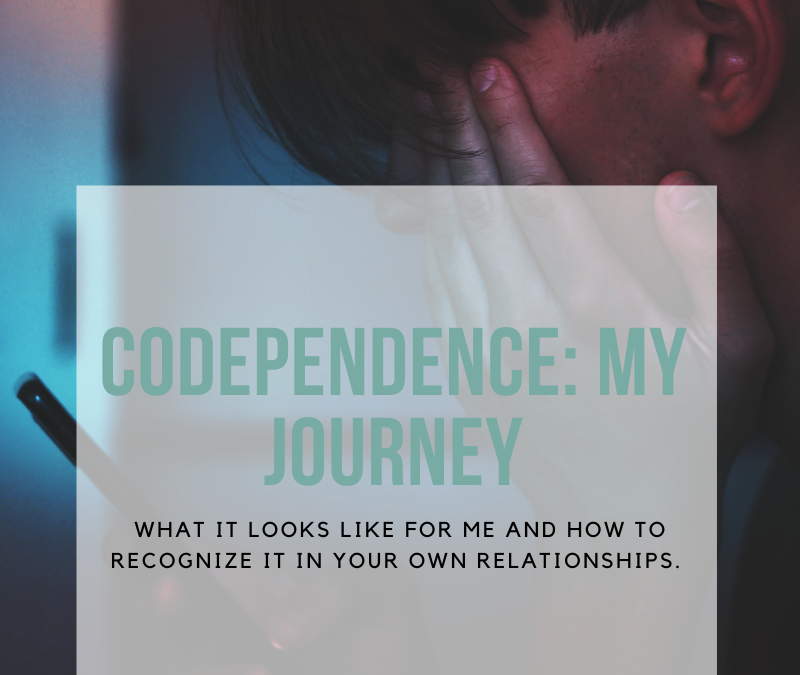Hi, I’m Janice, and I’m codependent. And this is a little bit about my story.
I have learned a lot about my codependent tendencies that have helped me to have a happier life and would love to share this with you or support you if you are looking for a new way to “do relationships.” Some of what I learned led me to become a breakup coach and I know that it can help others welcome more joy in their lives.
In a nutshell: codependence in my past relationships
A bit about my history with love…If you’ve read my blog or followed me elsewhere you will know that I am divorced from someone I married quite young. What I was incapable of knowing at the time was that things my childhood had helped me to develop a shall we say, strong desire to be in a marriage early on. Because of this desire, I developed unhealthy patterns in my relationship. As I grew older and learned more about the world, self-confidence, self-respect, and using my voice, I realized that these patterns were completely dysfunctional and that I was unhappy. I also learned that it is hard to change the way that a couple does things seven or eight years into a relationship. When I tried to, I got to learn what extreme gaslighting looks like, as my partner pushed back on my need to change the way we related to each other.
The marriage would end within a year.
I really feel like I rocked my divorce. I thrived for a while after, though mistakes were made along the way. What I know now, however, is that I didn’t give much attention to my relationship patterns that had led to the dysfunction in my marriage. I didn’t consider how I would do love differently once I started dating again. I got to the point when I was ready for a bit of passion and lost sight of what I would do to prevent finding myself unhappy with a partner once more.
This is why coaching after a divorce can be so beneficial!
Unexamined patterns can lead to other unhealthy relationships
A couple of years later I met a gorgeous, intelligent, worldly, generous man and fell into a passionate relationship with him. Although he showed all of the signs of an abuser, I didn’t see it/accept it. I allowed him to isolate me from friends and family by moving to a foreign country and stayed with him despite him becoming physically abusive somewhat early on. I also discovered in the first week of living overseas that he was a non-functioning alcoholic. His family went so far as to have me over for dinner without him and ask for my help within days of my arrival. It got worse and worse and I found myself in an absolute nightmare.
I supported him in getting through rehab after he came after me with a knife. And while he seemed committed to me and his recovery and the initial months after he came home were beautiful, he relapsed and became even more abusive. Wanting so badly to help him and earn his love, I left and went back another two times.
When I pulled myself away for the final time, I started to research how a person finds themselves in such a dangerous relationship. The word “codependence” started popping up a lot. I started to dig in and continue to learn more about this relationship pattern to this day.
Want to hear more about my story? Head to Ex-Philes and listen to my recent solo episode here.
Here is some of what I have learned about codependency:
What codependence is not (necessarily):
-Two people who want to be together all of the time
-People who are “up in each other’s business”
(While codependence could play a factor in these types of relationships, this is “enmeshment,” not necessarily codependence)
-It does not mean someone who doesn’t enjoy being independent
-It does not mean someone who relies on others for favors, help, etc.
Codependence may be someone who…
-Constantly assumes responsibility for the feelings, thoughts, behaviors, future, choices of others
-Derives a sense of worth in “rescuing” others from the consequences of their own choices
-Says yes when they mean no/ does things from a place of expectation versus wanting to do them
-Lives to please others/meet the needs of others without first meeting the needs of oneself
-Feels insecure and guilty when someone else gives to them
-Feels sad when they spend their whole lives giving to others and nobody gives to them
-Finds themselves attracted to needy people
-Finds that needy people attracted to them
-Feels bored or unsatisfied if they don’t have a crisis in their life, a problem to solve, etc
(The above list is from Co-Dependent No More by Melody Beattie)
Do you think you may have codependent tendencies? Some resources for you:
Codependent No More by Melody Beattie
The Language of Letting Go by Melody Beattie
Children of Emotionally Immature Parents by Lindsay Gibson
Want help changing your codependent patterns and developing ecstatic self-love? Contact me about my coaching programs.







Recent Comments